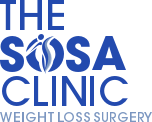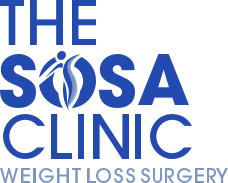Gastroesophageal Reflux Disease (GERD)
It is common and not serious to have occasional heartburn once or twice a week, specially brought on by spicy foods, alcohol or lots of caffeine. However, when heartburn occurs every day, chronically and severely it represents a severe health problem called GERD.
A valve at the lower end of our esophagus is supposed to close after swallowing. This valve prevents food and acid from coming back up or refluxing into the esophagus, throat and mouth. It is referred to as the Lower Esophageal Sphincter (LES).
When the LES gets weak or ruined, often caused by a hiatal hernia, it allows acid and food to reflux. This chronic heartburn and regurgitation not only causes burning, bitterness and pain but leads to harm the esophagus. This damage could include ulcers, bleeding and scarring, and over the years lead to cancer of the esophagus.
In case of mild, short-term heartburn, it can be effectively treated with drugs that neutralize acid (Maalox, Mylanta, Tums, Rolaids) or prevent the stomach from producing it (Pepcid, Nexium, Aciphex, etc.)
These drugs reduce burning and pain, but do not solve the problem and in many patients are ineffective in the long term. There is also supplementary information that continued use of these medicines can produce negative consequences.
Fortunately, a simple laparoscopic surgery can repair associated hiatal hernias and reinforce the LES with a new valve created using the patient’s own stomach. This operation is called a Fundoplication frequently known as a Nissen or Toupet procedure.
Since it is done laparoscopically with four small incisions, has a significantly fast recovery and low complication rate. It is frequently performed on an outpatient basis and normal activities can be resumed within a couple of days.
In our GERD program we have performed hundreds of laparoscopic fundoplications with most patients eliminating their reflux without further need of medicines.
This procedure is ideally suited for patients with several years of using drugs to control chronic heartburn.
A Staff Highly Specialized in Treatments of Obesity and Weight Loss Surgery

Frequently Asked Questions
Find quick answers here
We offer both, Sleeve Gastrectomy and Gastric Bypass, depending on the patient’s needs.
Our package includes a 23 hour stay in a Joint Commission Accredited Hospital. However, if the patient requires another day of stay or two, that can be arranged.
We see everyone in person for a one week follow-up visit with the doctor and the nutritionist. After this, the doctors’ visits are at one month, three months, six months, nine months and one year. If you are not in town these appointments can be virtual
Nutritionist visits could be done in person or over the phone and usually occur at one week, one month, 6 weeks, then can be customized to meet the patients needs as they advance their diet.
The average surgical time for a Gastric Bypass is one hour. The Sleeve Gastrectomy is somewhat shorter, about fifty minutes.
The Sleeve Gastrectomy is what we call a purely restrictive procedure. In other words, you will eat less food but you will continue to absorb the food and nutrients normally. That is why you tend to lose less weight than with a gastric Bypass.
The Gastric Bypass is a more aggressive surgery because there is a malabsorption component to the surgery, by bypassing a piece of the intestine sugar is not absorbed causing dumping syndrome(diahrrea) when you eat an excess of sugar. Total weight loss with the Gastric Bypass is significantly greater than with the Sleeve due to the malabsorption of sugar.
The Lap Band has been associated with long term problems such as erosion, slipped, dysphagia, reflux. Those problems are not present with the Sleeve, which results in a better weight loss than the Lap Band. So it is much better, and the surgeons have replaced the Lap Band with Sleeve, which is a more effective operation.
The Gastric Bypass is reversible because we have not removed any part of the anatomy, we have just bypassed a certain portion.
The Sleeve Gastrectomy is not reversable because we remove 80% of your stomach.
Both the Gastric Bypass and the Sleeve Gastrectomy are performed under general anesthesia. We have a very experienced anesthesia team that has done many operations.
We work with different medical finance companies to help you. We use CareCredit, Alphaeon Credit, Protapay, United Medical Credit. We also accept all major credit cards
Patients meeting the criteria of a BMI greater than 40 are candidates for weight loss surgery. Also those patients with a BMI of 35 or greater can be a candidate for surgery if they suffer from a co-morbid condition. The most typical co-morbid conditions include diabetes, high blood pressure, high cholesterol, and obstructive sleep apnea.

